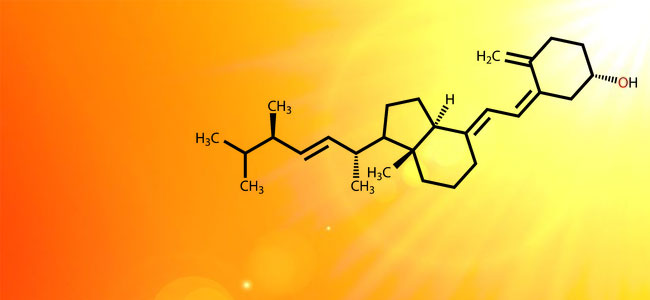There are vitamin D receptors located on sperm cells and vitamin D also appears to play a direct role in the production of steroid hormones. Similar to Zinc and Magnesium those found with low levels, and given supplementation to increase their status, also experienced increases in testosterone levels.
Generally speaking many people do not get enough vitamin D and supplementation may be required. However given the press over vitamin D’s positive effects on various aspects of health, many are supplementing with extraordinarily high levels with little regard for what this might be having on other nutrients in the body. One of the major concerns with high vitamin D dosing is the effect it can have on the relationship with other nutrients and possible health implications.
High vitamin D can increase levels of calcium in the blood, and the risk may be that increased calcium levels in the blood may increase calcium levels in soft tissue including the arteries, potentially having a negative effect on cardiovascular health.
Vitamin K plays a role in allowing the body to use calcium in the blood, thus high dose vitamin D with a vitamin K deficiency may contribute to an increased risk of calcification of the arteries as seen in vitamin K deficient populations.
Magnesium appears to play a role in the activity, metabolism and function of vitamin D. Because magnesium is used in the metabolism of vitamin D, there may be concern over high vitamin D supplementation contributing to even lower levels of magnesium in the body, and thus a recent study has shown that magnesium and vitamin D supplemented together is more effective than vitamin D supplementation alone. It has also be suggested that magnesium alone can have a significant impact on vitamin D status and directly correcting magnesium status may actually be a way of correcting vitamin D deficiency.
Magnesium has also been shown to help prevent calcification of arteries, thus increase vitamin D and thus blood levels of calcium with a lack of magnesium in the body may contribute to the potential calcification of arteries.
When it comes to vitamin D it is crucial balance is taken into consideration, perhaps having mineral levels and fat soluble vitamin levels is wise before any direct supplementation of vitamin D. Low magnesium alone may be enough to increase D levels, but if you are to supplement with D, then vitamin K would be advisable.
A good dose can be anywhere from 1,000iu-10,000iu per day with vitamin K. Vitamin D should always be taken with a meal containing fat for optimal absorption, and my personal preference is to have someone take it at lunch when we would normally be exposed to sunlight.
The best test for vitamin D is the 25-hydroxyvitamin D, and can be added as a standard blood test or performed as part of a fat-soluble vitamin profile.
Foods with highest vitamin D content
- Oily Fish
- Eggs
- Cod
- Liver
- Dairy
- Oysters
- Caviar
Symptoms of low vitamin D
- Low mood
- Achy bones
- Overweight
- Excessive head sweating
Those with darker skin also tend to be more prone to vitamin D deficiency and should have checks to determine levels and adapt supplementation or sun exposure to suit their needs.
Contact Steve Grant Health
To learn more out how Steve Grant Health can assist you on your journey, please fill out the enquiry form below.
Please note that depending on your specific circumstances and goals, Steve may recommend that you work with one of the specialist practitioners within his network of trusted professionals.
If you have been referred by a clinician, please complete the form and ensure that you state who has referred you or have your practitioner email Steve direct to make a referral that way.
Click the button below to open the client enquiry form:
[widgetkit id=”643″]


